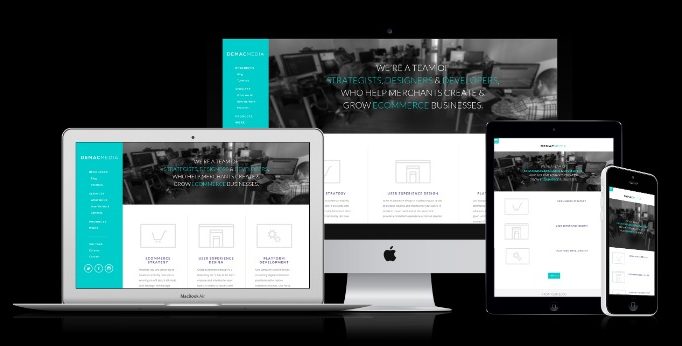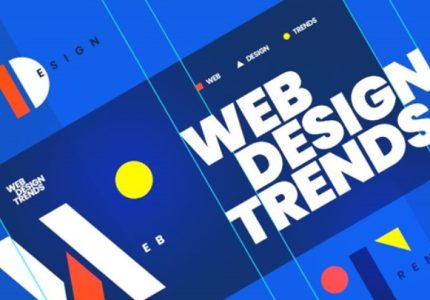Understanding Ecommerce Website Design in Johannesburg
Creating an effective ecommerce website in Johannesburg requires a blend of modern design, user-friendly navigation, and local market understanding. As the digital landscape continues to grow, businesses in Johannesburg are increasingly focusing on building attractive and functional online stores that cater to both local and international customers. Understanding the fundamentals of ecommerce website design is essential for establishing a strong online presence and driving sales in this vibrant city.
Factors Influencing Website Design Choices
Understanding ecommerce website design in Johannesburg involves considering various factors that influence the appearance, functionality, and user experience of online stores in the region. Local preferences, cultural nuances, and market trends play a significant role in shaping effective website designs that resonate with South African consumers.
Factors influencing website design choices include target audience demographics, which help determine the color schemes, layout styles, and content presentation. Additionally, mobile responsiveness is crucial, given the high mobile device usage in Johannesburg and broader South Africa. Site speed and performance are vital for retaining visitors and reducing bounce rates, especially in areas with variable internet connectivity. Security features, such as SSL certificates and secure payment gateways, are also essential to build trust with customers.
Furthermore, local branding and imagery should reflect Johannesburg’s unique identity to establish authenticity and regional appeal. Integration of local payment options and currency formats enhances usability and convenience for users. Overall, aligning design choices with consumer expectations, technological infrastructure, and regional culture ensures that ecommerce websites in Johannesburg are effective, engaging, and competitive in the digital marketplace.
Market Trends and Consumer Preferences
Understanding eCommerce website design in Johannesburg requires a keen awareness of the local market trends and consumer preferences that influence online shopping behaviors. Johannesburg, as South Africa’s economic hub, presents a diverse and dynamic digital landscape where users seek seamless, visually appealing, and user-friendly online shopping experiences. Effective website design must cater to the preferences of Johannesburg consumers, such as mobile friendliness, quick load times, and secure payment options, reflecting their increasing reliance on mobile devices for transactions.
Market trends in Johannesburg indicate a growing shift towards personalized shopping experiences, integrated social media features, and fast, efficient checkout processes. Consumers favor websites that are easy to navigate, offer detailed product information, and include local payment methods like EFT and mobile money. Additionally, there is a rising demand for websites that incorporate local cultural elements in their design, resonating with the community’s identity while maintaining a modern aesthetic.
Staying attuned to these preferences and trends allows businesses to develop ecommerce platforms that appeal to Johannesburg’s diverse customer base. Incorporating local language options, responsive design across devices, and trusted security features not only enhance user trust but also improve conversion rates. Overall, understanding the unique aspects of Johannesburg’s market is essential for creating successful ecommerce websites that meet the needs of local consumers and capitalize on the expanding digital economy.
Local Business Competitiveness
Understanding ecommerce website design in Johannesburg is essential for local businesses aiming to enhance their online presence and competitiveness. A well-designed ecommerce site tailored to the Johannesburg market can attract more customers, improve user experience, and boost sales. It involves creating a visually appealing interface, intuitive navigation, and mobile responsiveness to accommodate the high smartphone usage in the city. Additionally, integrating local payment options and highlighting regional products can make the website more relevant and trustworthy for Johannesburg consumers. Effective ecommerce design in Johannesburg not only captures the essence of the local culture but also incorporates SEO strategies to increase visibility in local search results, helping businesses stay ahead in a competitive marketplace.
Key Elements of Effective Ecommerce Website Design
Creating an effective ecommerce website in Johannesburg requires a focus on key design elements that enhance user experience and drive sales. A well-designed ecommerce platform combines intuitive navigation, responsive layout, compelling visuals, and streamlined checkout processes. These elements work together to attract visitors, keep them engaged, and encourage conversions, ensuring the success of online retail businesses in Johannesburg’s competitive market.
User-Friendly Navigation
Effective ecommerce website design in Johannesburg hinges on creating a user-friendly navigation system that enhances the shopping experience. Clear menus and logical categories help visitors easily find products, reducing frustration and increasing conversion rates. Incorporating features like search bars with filters further streamlines the browsing process. Consistent placement of navigation elements and intuitive layout ensure that users can effortlessly explore the site across devices. Well-designed navigation not only improves user engagement but also builds trust and encourages repeat visits, making it a vital component of successful ecommerce platforms in Johannesburg.
Responsive Mobile Design
Effective ecommerce website design in Johannesburg requires a focus on both aesthetic appeal and functional performance to attract and retain customers. Key elements include a clean and intuitive layout that makes navigation effortless, clear calls-to-action, and high-quality product images. Ensuring fast load times and seamless checkout processes are crucial for converting visitors into buyers. Incorporating trust signals such as customer reviews and secure payment icons enhances credibility and encourages transactions.
Responsive mobile design is essential in today’s ecommerce landscape, especially in Johannesburg where many users access online stores via smartphones. A responsive design adapts fluidly to different screen sizes, providing a consistent user experience across devices. It involves optimizing navigation menus, touch interactions, and image sizes to ensure fast loading times and ease of use on mobile devices. Prioritizing mobile responsiveness not only improves user satisfaction but also positively impacts search engine rankings, making it a vital component of successful ecommerce website design.
Fast Loading Speed
In designing an effective ecommerce website for Johannesburg, focusing on fast loading speeds is crucial to enhance user experience and increase conversions. A key element is optimizing images and media files to ensure they load quickly without sacrificing quality. Additionally, leveraging efficient coding practices, such as minifying CSS and JavaScript, helps reduce page load times. Reliable hosting providers and implementing content delivery networks (CDNs) can further improve speed by distributing content closer to users. A swift, responsive website not only retains visitors but also boosts search engine rankings, essential for competing in Johannesburg’s dynamic ecommerce market.
Secure and Trustworthy Interface
Effective ecommerce website design in Johannesburg focuses on creating a secure and trustworthy interface that enhances user confidence and encourages transactions. A clean and professional layout combined with intuitive navigation ensures visitors can easily find products and relevant information. Incorporating clear calls-to-action guides users seamlessly through the purchasing process, reducing friction and cart abandonment. Security features such as SSL certificates, secure payment gateways, and visible trust badges reassure customers that their data is protected. Additionally, transparent policies on privacy, returns, and shipping foster trust and transparency, essential for building long-term customer relationships. Optimizing the website for mobile devices and ensuring fast load times further contribute to a positive shopping experience, making the platform reliable and user-friendly for Johannesburg’s diverse audience.
Clear Calls to Action
Effective ecommerce website design in Johannesburg prioritizes several key elements to ensure a seamless shopping experience for users. Clear visuals and intuitive navigation help visitors find products easily, reducing frustration and increasing conversions. Incorporating high-quality images and simple menus tailored to the local audience enhances engagement and trust. Additionally, the website should be mobile-friendly, considering the high mobile usage rates in Johannesburg.
One of the most crucial aspects of ecommerce design is the inclusion of clear calls to action (CTAs). Well-designed CTAs such as “Buy Now,” “Add to Cart,” or “Shop Today” stand out visually and guide customers through the purchasing process. Positioning these CTAs strategically on product pages, banners, and checkout flows encourages immediate action. Using contrasting colors and concise text ensures that CTAs grab attention and motivate users to complete their transactions efficiently.
Visually Appealing Layout and Branding
In the competitive landscape of ecommerce in Johannesburg, a visually appealing layout and strong branding are essential for attracting and retaining customers. An effective ecommerce website design should focus on creating a clean, intuitive, and user-friendly interface that guides visitors seamlessly through the shopping process. Incorporating consistent branding elements such as logos, color schemes, and typography helps establish trust and brand recognition among Johannesburg shoppers. High-quality images and engaging visuals not only enhance the aesthetic appeal but also convey professionalism and reliability. Additionally, clear calls-to-action, straightforward navigation, and responsive design ensure that the website provides an optimal experience across all devices. By prioritizing these key elements, ecommerce businesses in Johannesburg can stand out in a crowded market and foster lasting customer loyalty.
Design Best Practices for Johannesburg-based Ecommerce Sites
Creating an effective ecommerce website for Johannesburg requires adherence to design best practices that enhance user experience and drive sales. Understanding the local market, cultural preferences, and browsing behaviors is essential for building a site that resonates with Johannesburg’s diverse consumers. By focusing on intuitive navigation, mobile responsiveness, and appealing visual design, businesses can establish a strong online presence and boost their ecommerce success in this vibrant city.
Localization and Cultural Relevance
Creating an effective ecommerce website for Johannesburg requires careful attention to design best practices that prioritize user experience, localization, and cultural relevance. Ensuring the site resonates with local audiences enhances engagement and sales, making it essential to adapt design elements accordingly.
- Locale-specific Content: Use language and terminology familiar to Johannesburg residents, including local slang or colloquialisms where appropriate to foster a sense of community.
- Currency and Payment Options: Display prices in South African Rand (ZAR) and integrate popular local payment methods such as EFT, SnapScan, or Zapper to facilitate seamless transactions.
- Visual Cultural Elements: Incorporate imagery, colors, and icons that reflect South African culture, such as traditional patterns or local landmarks, to make the site more relatable.
- Mobile Optimization: Given high mobile usage in Johannesburg, ensure the website is mobile-friendly with fast load times and an intuitive interface on smartphones.
- Local SEO Strategies: Optimize keywords related to Johannesburg and South African markets, including local dialects and region-specific search terms.
- Responsive Design: Maintain a consistent experience across devices, accommodating varying screen sizes and internet connection speeds common in the region.
- Community Engagement: Highlight local initiatives, partnerships, or stories that resonate with Johannesburg residents to foster loyalty and trust.
- Accessibility Considerations: Design with accessibility in mind to cater to all users, including those with disabilities, ensuring compliance with relevant standards.
Incorporating Local Payment Options
Designing an effective Johannesburg-based ecommerce site involves understanding the local market and integrating best practices that enhance user experience and trust. Prioritizing a clean, intuitive layout ensures customers can easily navigate through product categories, search for items, and access essential information quickly. Incorporating visually appealing elements that reflect Johannesburg’s vibrant culture can foster a strong local connection. Additionally, ensuring mobile responsiveness is crucial, as many users access the web via smartphones.
Integrating local payment options is vital for facilitating smooth transactions within Johannesburg. Offering popular South African payment methods such as E-wallets, mobile money services, and instant EFT options like Ozow or iPay enables users to pay securely and conveniently. Clearly displaying all available payment options builds confidence and reduces cart abandonment. Furthermore, implementing secure checkout processes and clear return policies helps establish trust and encourages repeat business.
Optimizing for local SEO by including relevant keywords related to Johannesburg and South Africa can improve visibility in local search results. Providing localized customer support, including contact details and assistance in local languages or dialects, enhances the shopping experience. Overall, a well-designed ecommerce site that combines effective layout, local aesthetic cues, and tailored payment solutions can significantly boost online sales within Johannesburg’s vibrant digital marketplace.
Optimizing for Local Search (SEO)
Designing an effective Johannesburg-based ecommerce site requires a focus on both user experience and local SEO strategies to attract and retain South African customers. Incorporate a clean, intuitive layout that highlights product categories relevant to the Johannesburg market, ensuring easy navigation for users. Use local imagery, language, and cultural references to create a sense of familiarity and trust.
Optimizing for local search involves implementing location-specific keywords such as “Johannesburg,” “Johannesburg online shopping,” and specific neighborhood names within product descriptions, meta tags, and titles. Register your business with Google My Business to enhance local visibility and encourage customer reviews. Additionally, ensure your website loads quickly on mobile devices, as many users in Johannesburg access the internet via smartphones. Incorporate schema markup to provide search engines with detailed information about your location and offerings, improving your chances of ranking higher in local search results. Finally, create high-quality, locally relevant content such as blog posts about Johannesburg events or shopping guides to engage the local community and boost SEO performance.
Integrating Social Media and Local Influencers
Designing an effective ecommerce website for Johannesburg requires a deep understanding of both local consumer behavior and the digital landscape. Prioritizing a user-friendly interface, fast loading times, and mobile responsiveness ensures a seamless shopping experience for South African customers. Incorporating local language options, culturally relevant visuals, and easy navigation fosters trust and encourages engagement. It is also vital to optimize the website for local search terms to enhance visibility within Johannesburg and broader South African markets.

Integrating social media into the ecommerce platform helps build brand awareness and facilitates customer interaction. Embedding social sharing buttons and live feeds from popular platforms like Facebook, Instagram, and Twitter encourages users to share products and reviews, boosting organic reach. Collaborating with local influencers who resonate with Johannesburg’s diverse demographics can significantly impactBrand credibility and sales. Influencers can create authentic content showcasing products in everyday settings, making the brand more relatable and appealing to local audiences.
To maximize effectiveness, develop a cohesive content strategy that leverages social proof and user-generated content, highlighting local customer stories and testimonials. Regularly updating the website with current social media campaigns and influencer collaborations keeps the content fresh and engaging. Overall, aligning ecommerce design practices with Johannesburg’s cultural nuances and digital trends ensures a strong, locally resonant online presence that drives conversions and fosters long-term customer loyalty.
Choosing the Right Ecommerce Platform
Choosing the right ecommerce platform is a crucial step in establishing a successful online store, especially for businesses based in Johannesburg looking to stand out in a competitive market. A well-selected platform can enhance user experience, streamline operations, and support future growth. Understanding the key features and capabilities of various options helps entrepreneurs make informed decisions that align with their goals and target audience.
Popular Platforms in Johannesburg
Choosing the right ecommerce platform is a crucial step in building a successful online store in Johannesburg. It determines how easily you can manage your products, process payments, and provide a seamless shopping experience for your customers. When selecting a platform, consider factors such as ease of use, customization options, scalability, and integration capabilities with local payment gateways.
Popular ecommerce platforms in Johannesburg include Shopify, WooCommerce, BigCommerce, and Wix. Shopify is favored for its user-friendly interface and comprehensive features, making it ideal for businesses seeking quick setup and scalability. WooCommerce, being a WordPress plugin, offers extensive customization and is suitable for businesses wanting more control over their website design. BigCommerce provides a robust solution with advanced selling features, perfect for growing enterprises. Wix is also a popular choice for small to medium-sized stores due to its drag-and-drop builder and affordability. Choosing the right platform depends on your specific business needs, budget, and long-term growth plans in Johannesburg’s growing ecommerce market.
Factors to Consider (Scalability, Customization, Support)
When designing an ecommerce website in Johannesburg, selecting the right platform is crucial for long-term success. Factors such as scalability ensure that the platform can grow with your business, accommodating increased traffic and product listings without performance issues. Customization options are also important, allowing you to tailor the site’s appearance and functionality to match your brand identity and meet specific customer needs. Additionally, reliable support is essential for addressing technical challenges promptly and maintaining smooth operations. By carefully evaluating these factors, you can choose an ecommerce platform that not only fits your current requirements but also supports your business expansion in Johannesburg’s dynamic market landscape.
Cost-Effective Solutions
Choosing the right ecommerce platform is crucial for establishing a successful online store, especially in a competitive market like Johannesburg. Cost-effective solutions ensure you can launch and grow your business without overspending while still offering a seamless shopping experience to customers.
When evaluating ecommerce platforms, consider the following factors:
- Ease of Use: Select a platform with an intuitive interface that allows easy setup and management without extensive technical knowledge.
- Cost Structure: Compare upfront costs, transaction fees, and monthly subscriptions to find affordable options that fit your budget.
- Design Flexibility: Ensure the platform offers customizable themes and templates suitable for your brand and target audience in Johannesburg.
- Features and Integrations: Look for essential features such as payment gateways, marketing tools, and inventory management, along with compatibility with local payment providers.
- Scalability: Choose a platform that can grow with your business, accommodating increased traffic and product listings over time.
- Support and Community: Consider platforms with robust customer support and active user communities to help troubleshoot issues quickly.
Popular cost-effective ecommerce platforms to consider include Shopify, WooCommerce, and Wix. Each offers a range of affordable plans tailored for small to medium-sized businesses in Johannesburg seeking reliable performance and attractive design options. Carefully assessing your business needs and budget will help you select the ideal platform to build a successful online presence.
Role of Professional Web Design Agencies in Johannesburg
Professional web design agencies in Johannesburg play a vital role in shaping the digital presence of businesses, especially in the rapidly growing e-commerce sector. These agencies offer expert skills in creating visually appealing, user-friendly, and highly functional websites tailored to meet the unique needs of local and international markets. By leveraging the latest design trends and technological advancements, they help businesses stand out in Johannesburg’s competitive online landscape and drive sales effectively.
Benefits of Hiring Local Experts
Professional web design agencies in Johannesburg play a crucial role in creating effective eCommerce websites that cater to the specific needs of local businesses. They bring expertise in designing user-friendly, visually appealing, and high-performing online stores that can attract and retain customers. Local agencies understand the Johannesburg market dynamics, consumer preferences, and cultural nuances, enabling them to develop tailored solutions that resonate with the target audience.
Hiring local experts offers numerous benefits, including easier communication and quicker project turnaround times, as they are readily available for face-to-face meetings and consultations. Local web design agencies also have firsthand knowledge of the regional industry trends and competitive landscape, which allows them to craft strategies that give your eCommerce site a competitive edge. Additionally, working with professionals who are familiar with local SEO practices ensures better visibility in local search results, driving more traffic and increasing sales. Overall, partnering with Johannesburg-based web design agencies ensures a personalized approach and ongoing support to help your online business succeed in the vibrant local market.
Services Offered (Design, Development, SEO, Marketing)
Professional web design agencies in Johannesburg play a crucial role in helping businesses establish a strong online presence through expertly crafted ecommerce websites. These agencies bring together creative design, technical development, and strategic marketing to ensure that online stores are visually appealing, user-friendly, and highly functional.
Services offered by these agencies typically include bespoke website design tailored to brand identity, responsive development ensuring compatibility across devices, and seamless integration of ecommerce platforms such as Shopify or WooCommerce. Additionally, they provide search engine optimization (SEO) services to improve online visibility and attract organic traffic. Marketing strategies, including social media promotion, email campaigns, and content creation, are also part of their offerings to boost sales and customer engagement.
Overall, professional web design agencies in Johannesburg are essential partners for businesses aiming to succeed in the competitive ecommerce landscape by delivering comprehensive solutions that cover every aspect of online retail success.
Case Studies of Successful Ecommerce Websites
Professional web design agencies in Johannesburg play a critical role in developing successful ecommerce websites by combining local market expertise with innovative design and technology solutions. These agencies understand the unique preferences and shopping behaviors of South African consumers, enabling them to create user-friendly platforms that enhance customer experience and drive sales. Their services often include strategic planning, responsive design, seamless navigation, and secure payment integrations, all tailored to meet the specific needs of online retailers in Johannesburg.
Case studies of successful ecommerce websites in Johannesburg highlight the impact of professional web design. For example, a local fashion retailer revamped its online store with the help of a Johannesburg-based agency, resulting in a significant increase in traffic and conversions due to improved site usability and modern aesthetics. Another case involves a food delivery service that optimized its platform for mobile users, leading to higher order volumes and customer retention. These examples demonstrate how partnering with skilled design agencies can transform online businesses by delivering visually appealing, functional, and user-centric ecommerce websites that resonate with the Johannesburg market.
Future Trends in Ecommerce Website Design in Johannesburg
As Johannesburg’s digital landscape continues to evolve, ecommerce website design is experiencing significant advancements driven by innovative technologies and changing consumer preferences. Businesses in Johannesburg are now prioritizing seamless user experiences, mobile-first designs, and personalized interfaces to stay competitive in a dynamic market. Emerging trends such as immersive visuals, AI-powered functionalities, and faster load times are shaping the future of ecommerce websites in the region, promising more engaging online shopping experiences for local consumers.
Artificial Intelligence Integration
As ecommerce continues to evolve in Johannesburg, integrating artificial intelligence into website design is becoming a key trend shaping the future of online shopping experiences. AI-powered chatbots and virtual assistants are enhancing customer service by providing instant support and personalized recommendations, making shopping more convenient and tailored to individual preferences. Additionally, AI algorithms analyze user behavior and purchasing patterns to optimize product displays, improve site navigation, and increase conversion rates. Future ecommerce website designs in Johannesburg are also expected to incorporate advanced personalization features, dynamic content, and automated marketing tools driven by AI, creating highly engaging and efficient shopping environments. This technological integration not only boosts operational efficiency but also helps businesses stand out in a competitive market by delivering smarter, more responsive, and user-centric online platforms.
Augmented Reality Shopping Experiences
Future trends in ecommerce website design in Johannesburg are rapidly evolving, with augmented reality shopping experiences emerging as a key innovation. As consumers seek more immersive and interactive ways to browse and purchase products, local ecommerce platforms are adopting AR technology to enhance user engagement and drive sales.
- Enhanced Product Visualization: AR allows customers in Johannesburg to visualize products in their real environment, such as trying on clothing virtually or previewing furniture in their homes, reducing uncertainty and increasing confidence in purchases.
- Seamless Mobile Integration: With high mobile device usage in Johannesburg, AR experiences are optimized for smartphones, ensuring accessibility and convenience for a broad customer base.
- Personalized Shopping Journeys: Ecommerce sites are leveraging AR to offer personalized recommendations, enabling users to interact with virtual representations tailored to their preferences and needs.
- Real-Time Customer Support: Augmented reality combined with live chat features allows for instant guidance and assistance during the shopping process, enhancing customer satisfaction.
- Interactive Showrooms: Virtual showrooms powered by AR create immersive shopping environments online, mimicking physical store experiences and attracting more tech-savvy shoppers.
Voice Commerce and Chatbots
Future trends in ecommerce website design in Johannesburg are focusing on creating more personalized and seamless shopping experiences to meet the evolving expectations of consumers. Enhancements in mobile responsiveness, minimalist layouts, and fast-loading pages are becoming standard to cater to the tech-savvy South African market. Voice commerce is increasingly gaining traction, allowing customers to make purchases and search for products through voice commands, offering unmatched convenience and accessibility. Additionally, the integration of chatbots is revolutionizing customer service by providing instant support, personalized recommendations, and handling inquiries efficiently around the clock. As Johannesburg continues to embrace digital transformation, ecommerce websites that incorporate these innovative features will stay competitive and deliver superior user experiences.
Eco-Friendly and Sustainable Design Practices
Future trends in ecommerce website design in Johannesburg are increasingly focusing on eco-friendly and sustainable practices to meet the growing consumer demand for environmentally responsible shopping options. As the city continues to embrace innovation, eco-conscious design is becoming a key component in creating engaging and responsible online shopping experiences.
- Implementation of Green Hosting: Utilizing energy-efficient servers and renewable energy sources to power ecommerce websites, reducing carbon footprints.
- Eco-Friendly Visuals and Content: Incorporating sustainable themes through visuals, icons, and messaging that highlight environmental commitments and eco-friendly products.
- Minimalist Design with Low Impact Elements: Focusing on simplified layouts that reduce loading times and data usage, which contributes to energy savings and improved user experience.
- Integration of Sustainable Packaging Information: Displaying details about eco-friendly packaging options and encouraging consumers to make sustainable choices.
- Use of Local and Sustainable Materials in Content Creation: Collaborating with local eco-conscious artists and photographers to support community sustainability and reduce supply chain impacts.
- Promotion of Circular Economy Practices: Providing features that support product reuse, recycling, and upcycling, fostering a sustainable shopping environment.
- Enhanced Accessibility and User Engagement: Designing interfaces that promote education about sustainability practices and motivate eco-friendly purchasing decisions.





